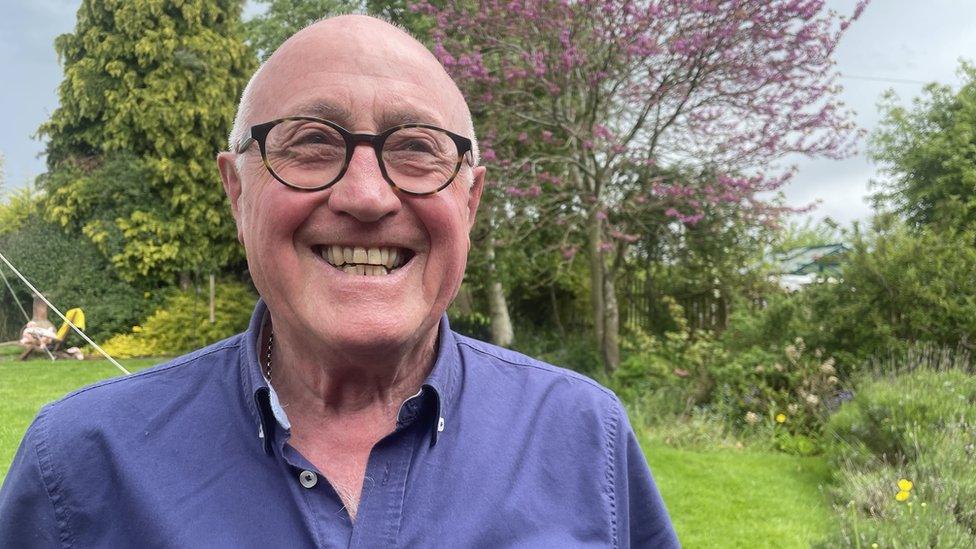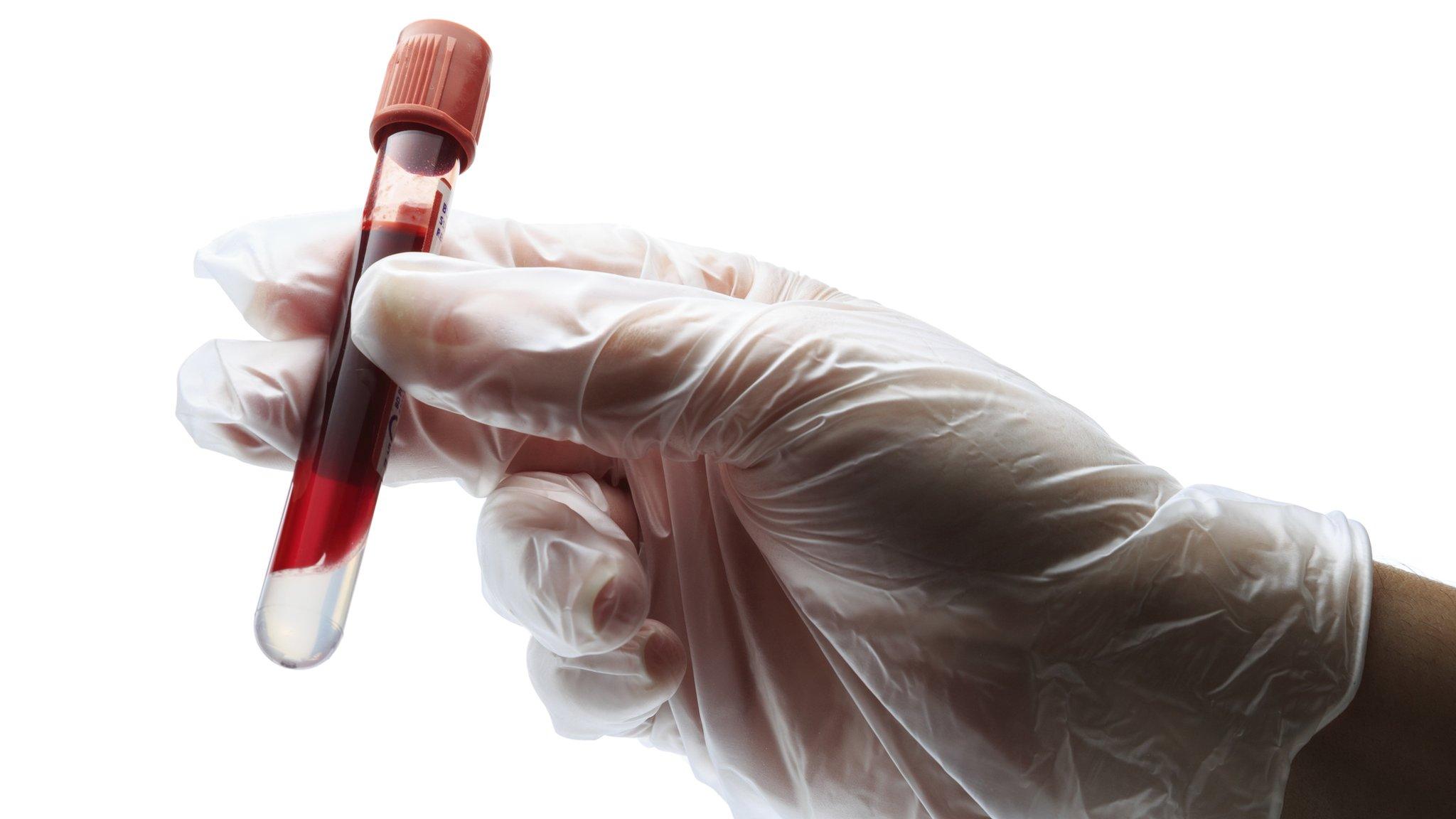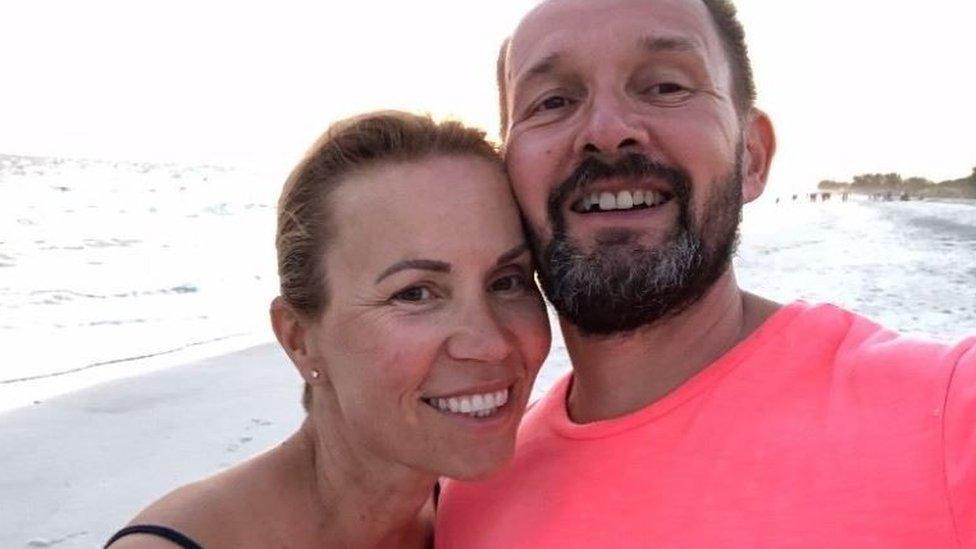New blood test for ovarian cancer could save 'thousands'
- Published

The advanced blood test, called ROMA, aims to identify ovarian cancer at an earlier stage
A new study could see an advanced blood test used to detect early stage ovarian cancer across the West Midlands.
The trial, involving a blood test called ROMA, is set to run in Walsall, Sandwell and Birmingham for 18 months.
The test will be offered to those experiencing symptoms of the cancer to try and identify the disease at an earlier stage.
Professor Sudha Sundar, from the University of Birmingham, said the test could potentially save "thousands".
The project, led by Sandwell and West Birmingham and Walsall Healthcare NHS Trust, in partnership with the University of Birmingham, will see the test given to patients at GP surgeries run by care provider Modality.
"Unfortunately [for] women in the UK, the majority of women will be diagnosed at stage three or four ovarian cancer, when the cancer has spread beyond the ovaries and into other parts of the tummy," Professor Sundar said.

Richard Riley, who lost his wife Maxine to ovarian cancer said the test "would make a difference" to those with symptoms
She said the the new trial had aimed to establish if the cancer could be diagnosed earlier for women with persistent symptoms, such as bloating, stomach pain and distention.
"If we are able to shift the way in which we are diagnosing ovarian cancer now, we will be able to substantially increase the number of lives saved in the UK and worldwide," she added.
"I would put that number as thousands of lives [potentially] saved."
'Make a difference'
Richard Riley, from Bromsgrove, Worcestershire, said he was "delighted" to hear the new test would be offered by NHS providers.
His wife Maxine had died in 2019 after being diagnosed with ovarian cancer.
Mr Riley, trustee for the cancer charity Ovacome, had told BBC WM the test "would make a difference" to those with the "difficult to diagnose" cancer.
"It's very much a case of being proactive and this will make a difference, there's no doubt about it," he said.
"To have a test that is going to make it easier to diagnose ovarian cancer early has got to be good, because the earlier it can be treated the better."

Follow BBC West Midlands on Facebook, external, Twitter, external and Instagram, external. Send your story ideas to: newsonline.westmidlands@bbc.co.uk, external
Related topics
- Published12 May 2021

- Published17 December 2015

- Published27 January 2023

- Published28 January 2022

- Published29 January 2019
